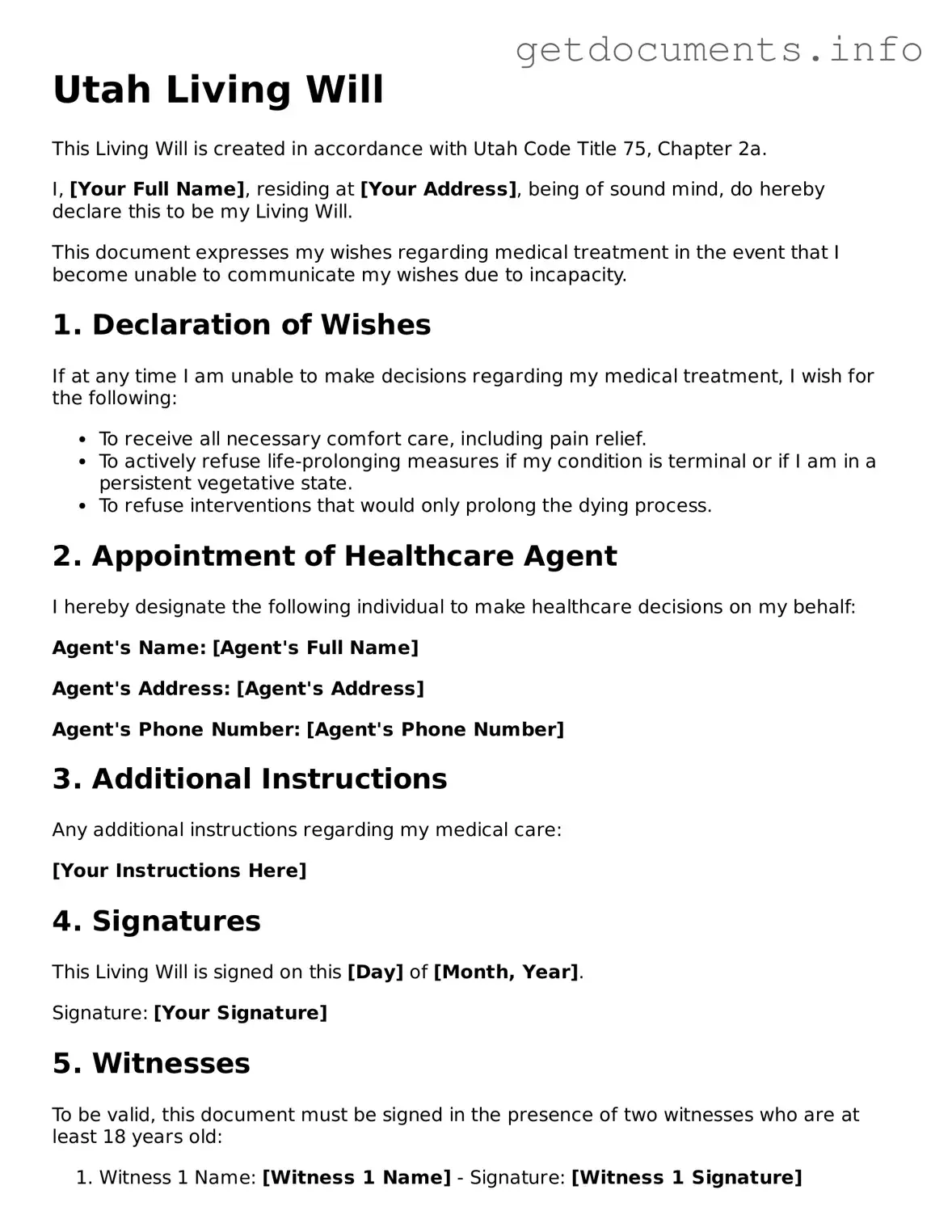Free Living Will Template for Utah
A Utah Living Will form is a legal document that allows individuals to outline their preferences regarding medical treatment in the event they become unable to communicate their wishes. This form serves to guide healthcare providers and family members in making decisions that align with the individual's values and desires. To ensure your wishes are known, consider filling out the form by clicking the button below.
Access Living Will Editor

Free Living Will Template for Utah
Access Living Will Editor
Got places to be? Complete the form fast
Fill out Living Will online and avoid printing or scanning.
Access Living Will Editor
or
⇩ PDF File
